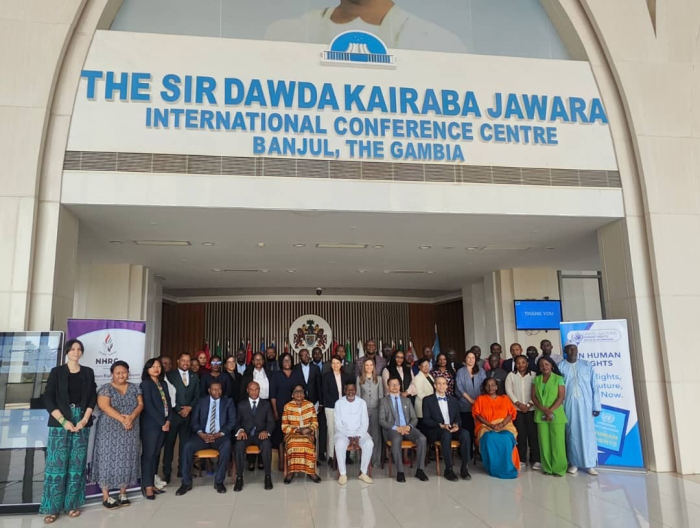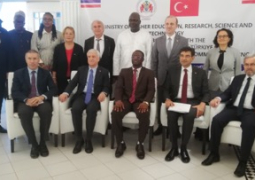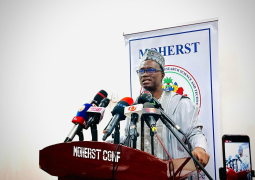
The event was being organized by the Office of the United Nations High Commissioner for Human Rights (OHCHR) in collaboration with the National Human Rights Commission (NHRC.)
Currently underway at Sir Dawda Kairaba Jawara International Conference Center in Bijilo, was aimed at promoting the use of United Nations Human Rights mechanisms in the field of anti-corruption and human rights.
The event will also look to ensure best practices, opportunities, and lessons learned; to strengthen networks among and between States, National Human Rights Institutions (NHRIs), and human rights and anti-corruption, CSOs to foster a conducive environment for cooperation and to promote synergy.
Addressing the gathering, Emmanual Daniel Joof, chairperson at the National Human Rights Commission- The Gambia (NHCR), revealed that corruption is one of the most deeply entrenched impediments to the realization of human rights, good governance, and sustainable development.
Joof observed that the menace undermines every one of the Sustainable Development Goals as well diverts resources from essential services, erodes public trust, and perpetuates inequality and injustice.
‘Corruption is a global phenomenon, and it exists in nearly all societies, regardless of economic or political systems, and it thrives in both the public and private spheres albeit in varying degrees’.
He maintained that the Committee on Economic, Social and Cultural Rights has observed corruption as major obstacle to the effective promotion and protection of human rights, especially economic, social, and cultural rights.
The Gambia, he said, has recently made some significant strides in addressing corruption, notably, the passage of a new Anti-Corruption Act, 2023 by the National Assembly in December marking a major step forward.
According to him, this new Act, which repeals the earlier 2012 Anti-Corruption Act introduces a comprehensive framework to deter, detect, and punish corruption in both the public and private sectors.
Also speaking, Karl Frederick Paul, United Nations Resident Coordinator for The Gambia, pointed out that corruption diverts resources from essential services, and hampers efforts to build resilient and inclusive societies.
Thus, he described the event as timely as it provides a critical platform to explore how human rights mechanisms can be leveraged as tools to address corruption from a human rights-based perspective.
The UN Resident Coordinator reminded that these mechanisms have consistently underscored the cost of corruption on human rights and the importance of accountability and transparency.
The implementation of these recommendations, he added, is vital not only for promoting human rights but also for advancing Agenda 2030.
He assured that the UN system will continue to work in close partnership with national and regional actors to support reforms and advocate for accountability, transparency, and participation in public life.
Pradeep Wagle, head of Economic, Social and Cultural Rights Section, Thematic, Engagement, Special Procedures and Right to Development Division, Office of the Un High Commissioner for Human Rights (OHCHR) and Mr. Hussein Thomasi, Solicitor General and Legal Secretary at the Ministry of Justice, both spoke at the event.
Read Other Articles In National News

MOHERST, Turkish delegation hold high-level tech. committee meeting
Jul 25, 2023, 11:56 AM




